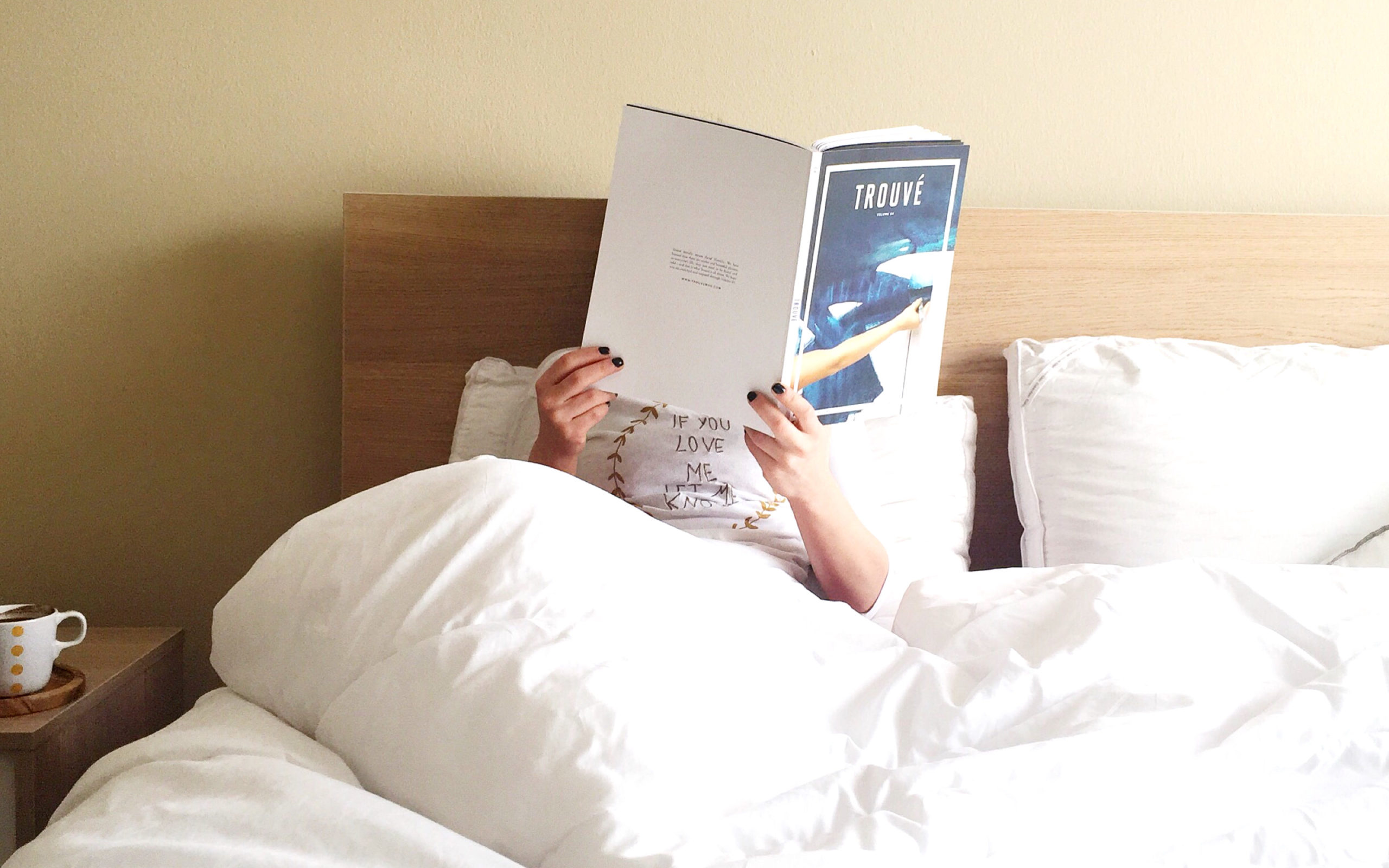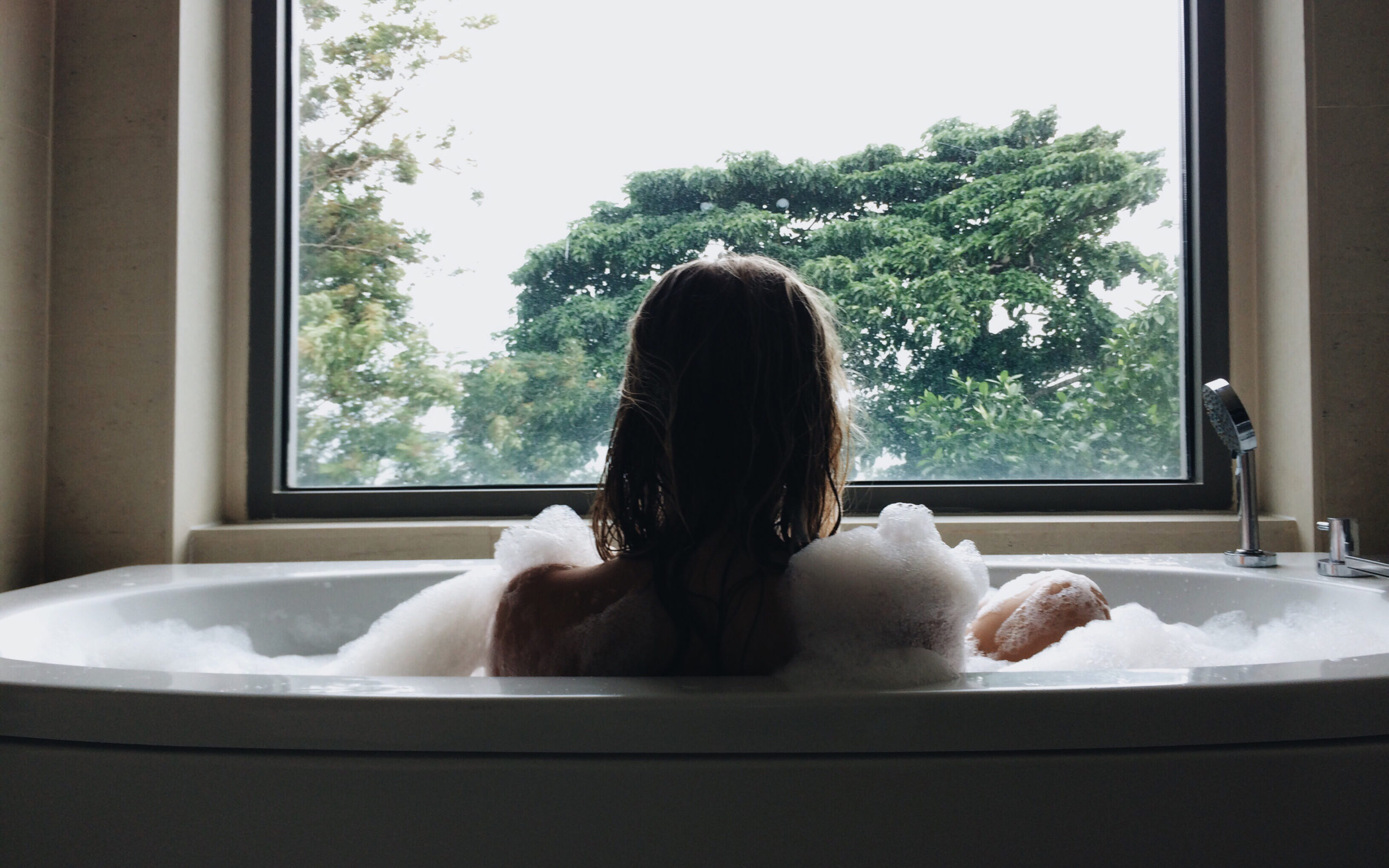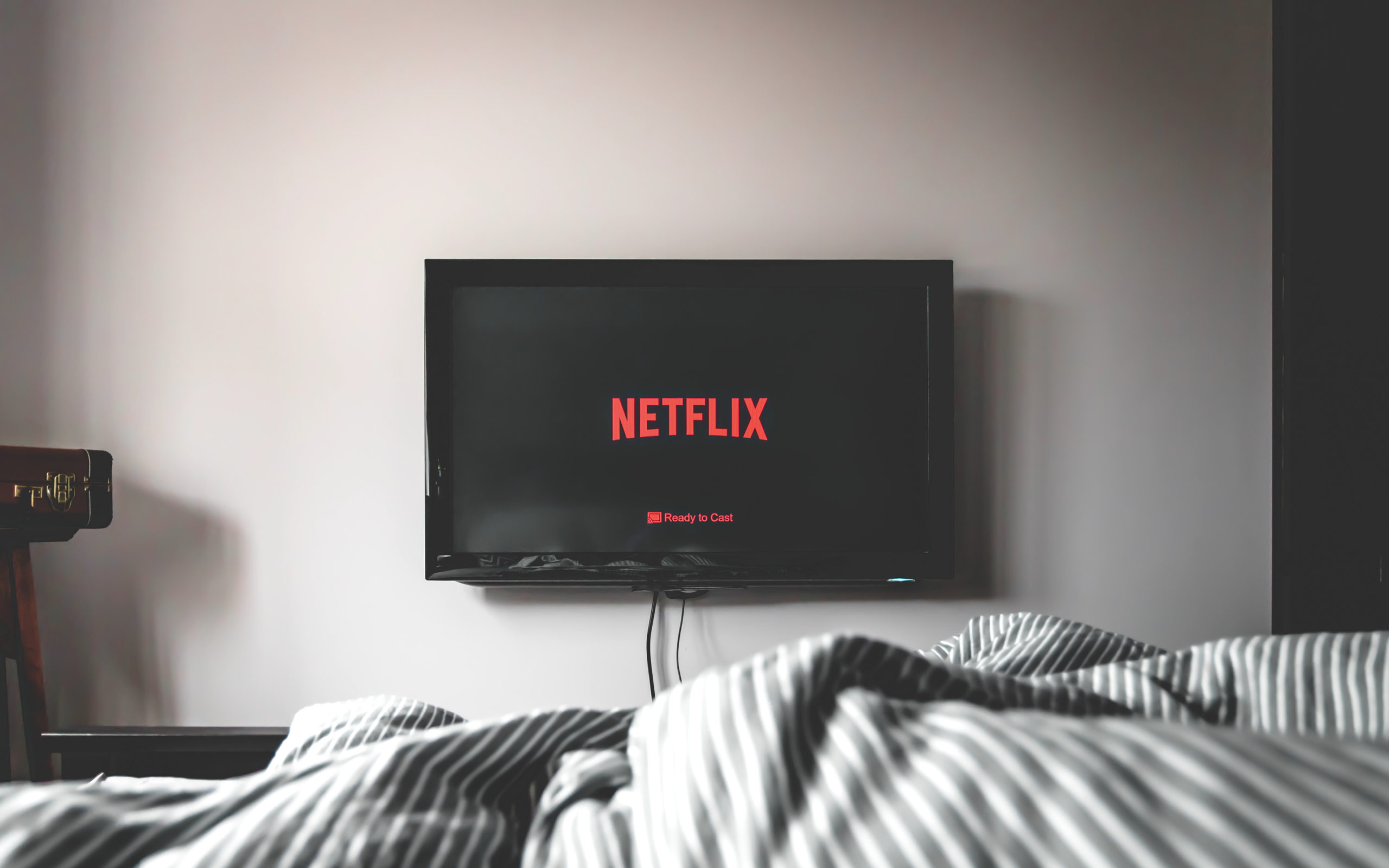How many times have you said “I’m tired” today? More than a few? For nearly 50% of Americans, getting the quality recommended eight hours of sleep we need every night isn’t a simple equation.
For many (myself included), the moment when head meets pillow is often one when the mind and heart begin to race, wondering when sleep will come, which, if you’re someone who suffers from any kind of sleep-related issue, you know only makes things worse. Insomnia, nighttime anxiety, and simple sleeplessness can affect more than your ability to get up on time. Not getting enough sleep affects nearly every aspect of life, including our health. A recent study found there could even be a correlation between sleep problems and Alzheimer’s, and if that’s not reason enough to brush up on your bedtime wellness, we don’t know what is. While the tips below may not be able to completely cure some sleep-related issues and anxieties, they can set you on the path to better rest. As always, we recommend speaking with your doctor or naturopath to support a more well-rested routine in full.

Create a sanctuary
What does your bedroom look like right now? Are there clothes on the floor? Bedside tables piled high with books, magazines, and empty glasses? Are the sheets rumpled — or the bed not made at all? If that sounds like you, the state of your surroundings might be affecting the quality of the sleep you’re getting. Think about it: If the room around you is in a state of chaos, how does that reflect on your state of mind before sleep? A cozy bedroom should be exactly that: cozy, welcoming, and above all, relaxing. If your room looks as though it was recently struck by a tornado, it might be time for a bedroom detox. Put your clothes away, clear out the clutter, give your side table essentials a stylish landing place and invest in sheets you’ll want to sleep in, a cozy throw, and fresh pillows. Transforming your bedroom into a place where you actually want to spend time could be the first step toward getting the quality sleep you need and deserve.

Craft your wind-down ritual
Most of us have some sort of morning ritual. We wake up, stretch, maybe do a few sun salutations or a short meditation, and drink some coffee or tea before getting ready for the day. But what do you do when it’s time for bed? Brush your teeth? Wash your face? Immediately go from watching a show to attempting to catch eight uninterrupted hours of quality shut-eye? Most of us know that sleep isn’t — usually — an instantaneous state of being, so ease yourself into the mindset of falling asleep fast by creating a nightly ritual. Your bedtime ritual can be whatever you’d like it to be, but it should support peace and quiet, and ready you for bed. It could be a cup of chamomile tea and a good book, or a warm bath followed by writing a few lines about your day. However you choose to wind down your day, there’s one thing that your nightly routine shouldn’t include: screens. Most experts recommend powering down electronics at least an hour ahead of bedtime, which brings us to our next point…

Nix the screens
If your bedtime routine currently involves binging the latest and greatest Netflix shows and scrolling on your phone until it hits you in the face, you could be doing more harm than good. We’re all guilty of indulging in the endless scroll, but the blue light emitted by your phone, computer, or tablet may be tricking your body into the thinking it’s daytime — and even altering your circadian rhythm, making it hard to fall asleep and difficult to wake up. This goes for TVs, too. A huge number of Americans have TVs in their bedrooms, which not only affects quality of sleep but may create distance in romantic relationships, too. Break the cycle by removing all screens from your bedroom and powering down at least an hour before bed to allow your body time to acclimate. If you use your phone as an alarm, consider investing in a digital alarm or setting your phone on the opposite side of the room. You may even find yourself hitting ‘snooze’ less often!
Find some support
If you still feel your heart racing or you’re tossing and turning before bed, you may consider adding a quality CBD tincture or softgel (we love this one from Joy Organics) to your routine to help you relax. CBD oil, or cannabidiol, is an oil extracted from the hemp plant. Unlike THC, CBD won’t get you high, but works to support the endocannabinoid system, the system that regulates things like memory and pain. While CBD has very few side effects, one of the most common is drowsiness, which may be of benefit to those of us who have trouble falling asleep at night. Along with CBD, teas that contain chamomile or valerian may support restful sleep and can help you wind down at the end of the day.
Do you have tips for reducing anxiety at night? Share with us on social by tagging @AvocadoMattress and #AvocadoGreenMagazine!

Shop Pillows
The Essential Organic Pillow Collection
Gentle, breathable, non-toxic support.





